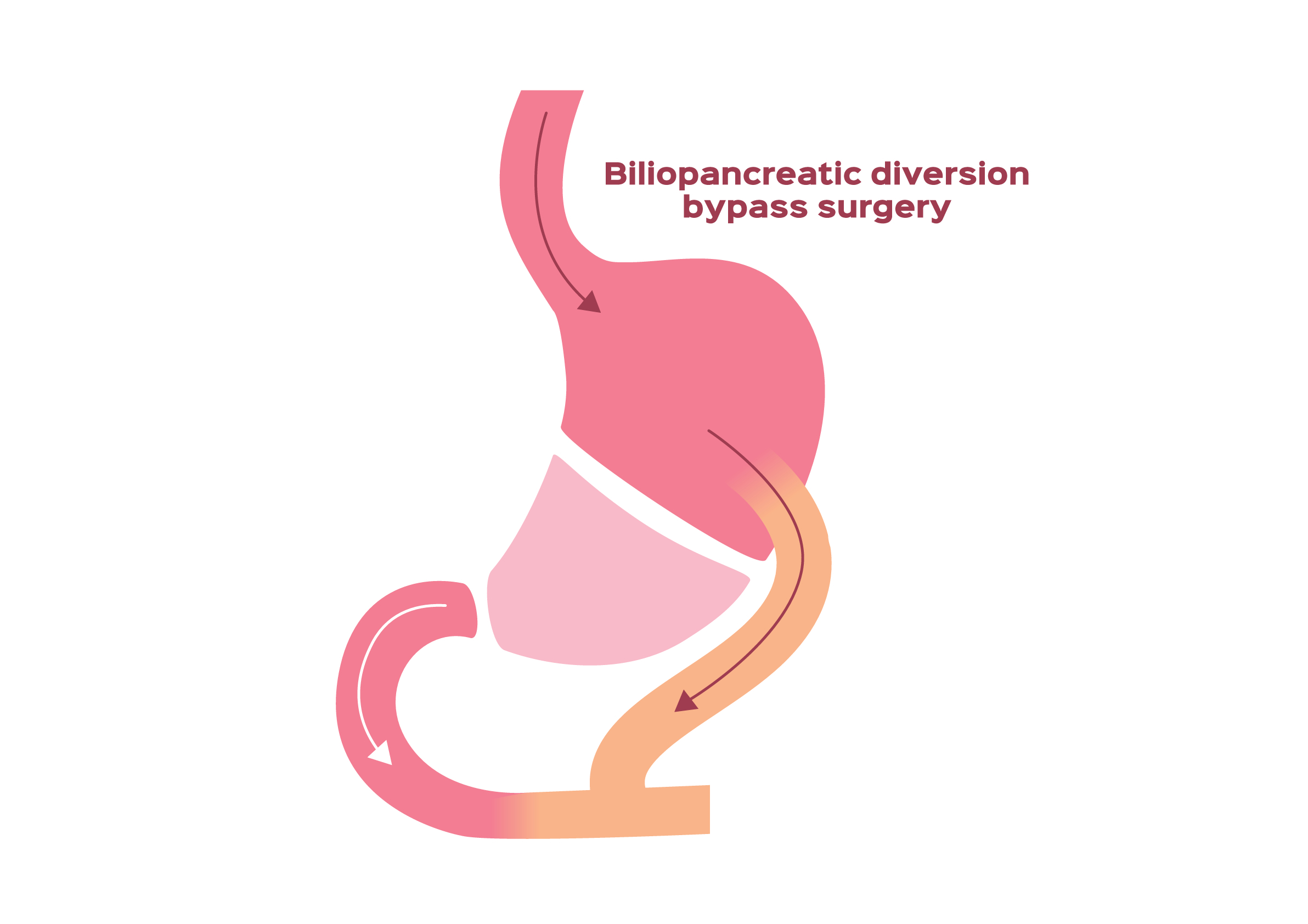Biliopancreatic Diversion vs. Gastric Bypass: What’s the Difference?

All bariatric surgeries involve modifying the capacity of the stomach as at least a part of the procedure. While they all help individuals lose weight and control hunger, each one uses a different method. Wiljon W. Beltre, MD is a Board-Certified surgeon with over 20 years of experience helping those who are significantly overweight achieve effective and lasting weight loss using the most innovative procedures available.
Dr. Beltre provides compassionate, life-altering medical care and is eager to help you achieve your weight loss and health goals. If you’re considering bariatric surgery to help you lose weight, he encourages you to learn more about the differences between biliopancreatic diversion vs. gastric bypass surgery.
Gastric bypass is a well-known type of weight loss surgery typically recommended for patients over the age of 50. However, for many patients in need of significant weight loss, biliopancreatic diversion may be a better option.
What is a biliopancreatic diversion?
A biliopancreatic diversion is a medical weight-loss procedure that involves a sleeve gastrectomy and an intestinal bypass to decrease the amount of food that is absorbed in the body. During the procedure, Dr. Wiljon Beltre removes approximately 70% of the stomach (sleeve gastrectomy) and the first part of the lower intestine, the duodenum. It’s then divided and attached to the lower part of the intestine, the ileum. This is the intestinal bypass portion of the procedure, and it leaves only a few feet of the intestine where food and digestive enzymes meet.
What is a gastric bypass?
The difference between a biliopancreatic diversion vs gastric bypass is that the stomach is not completely removed in a gastric bypass procedure. Instead, the stomach is divided into a smaller upper pouch and a larger lower pouch. Once the stomach has been divided, the small intestine is then rearranged to connect to both.
Gastric bypass is not recommended for individuals with severe medical illnesses or extensive abdominal surgery. Following a gastric bypass, more people eat less food, experience hunger less often, and realize improved medical conditions, like diabetes. Common side effects include food intolerances and feeling sick after eating.
According to the National Institutes of Health, the biliopancreatic diversion procedure results in greater weight loss than a routine gastric bypass procedure because the body must use more energy to digest food. In short, this means you can burn more calories throughout the day, which can help you shed more weight over time.
Benefits of biliopancreatic diversion vs. gastric bypass
When combined with a healthy lifestyle, there are several benefits of biliopancreatic diversion, including:
- More efficient weight loss as compared to other weight loss procedures, including gastric bypass.
- Dramatic weight loss in the first year, followed by steady weight loss in the second year and easier weight management in subsequent years. With a biliopancreatic diversion, you can expect to lose upwards of 70% of excess body weight as compared to 30-40% with gastric bypass.
- Significantly decreased risk of experiencing “dumping syndrome,” a condition in which food moves too quickly from your stomach to your duodenum, which can cause nausea and abdominal cramping.
- Continued ability to eat normal portions of food, unlike many other weight loss procedures, like gastric bypass.
- Improved self-confidence as well as physical and emotional well-being
Is biliopancreatic diversion right for me?
If you’re curious whether a biliopancreatic diversion procedure is right for you, schedule an appointment at Beltre Bariatrics. Dr. Beltre will perform a comprehensive evaluation to determine which weight loss procedure is right for you. To be a good candidate for this procedure, you must have a body mass index (BMI) greater than 50 and be healthy enough to tolerate surgery. Those with comorbidities, like diabetes, are typically good candidates as well.
If you’re interested in one of Dr. Wiljon Beltre’s weight loss procedures or would like to learn more about biliopancreatic diversion surgery, call Beltre Bariatrics at 321-499-6505.

Are You a Candidate for Weight Loss Surgery?
Take our 60 second assessment and find out if you are a candidate for weight loss surgery


